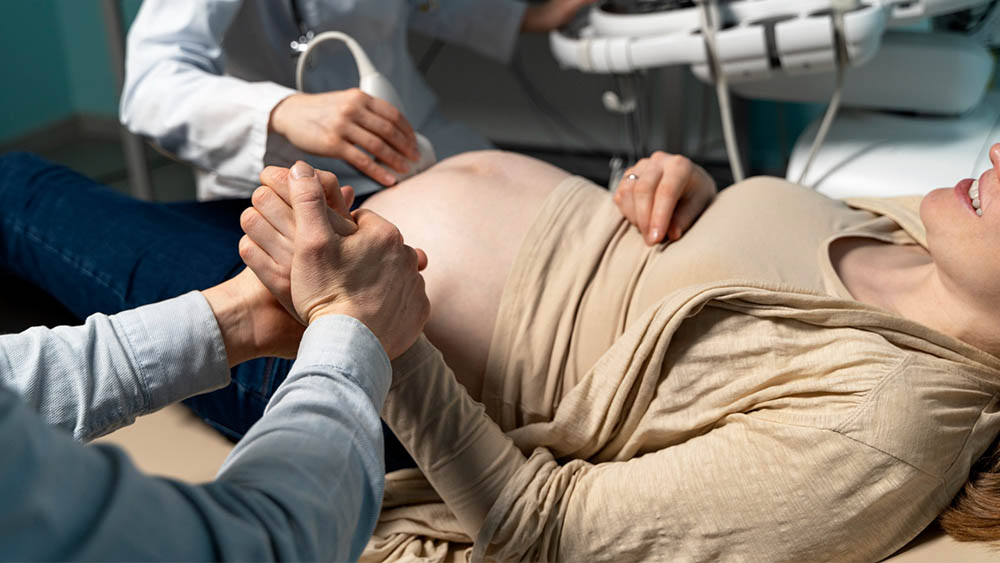Families’ approach to fertility concerns has changed a lot in recent years. Families facing infertility and genetic issues can now find innovative solutions. Pre-implantation Genetic Screening (PGS) and Pre-implantation Genetic Diagnosis (PGD) are two examples of these developments. These have become critical alternatives for couples who are going after IVF treatment in Kolkata to maximize their chances of a healthy pregnancy.
Today, in this blog, we are going to discuss what their roles are in IVF and what factors you need to consider if you are contemplating PGD or PGS in your IVF journey, especially if you are considering IVF treatment.
What are PGD and PGS?
-
Pre-implantation Genetic Diagnosis:
PGD is a targeted test for screening specific genetic diseases or disorders that either one or both parents carry. It is most often applied to couples who have genetic mutations known to them or are at a higher risk of transferring inherited conditions. The principal aim is to identify those embryos that are free of such conditions, thus giving a better chance of having a healthy pregnancy and reduced chances of serious genetic disorders in the child. -
Pre-implantation Genetic Screening (PGS):
Unlike PGD, PGS is not condition-specific; however, it screens the embryos for chromosomal abnormalities, considering the number of chromosomes in the embryo. PGS is most often recommended for couples who have recurrent miscarriages, advanced maternal age, or failed IVF cycles.
The Role of PGD and PGS in IVF Treatment in Kolkata
-
Best Embryos Selection
The viability during IVF therapy at the time of implantation can be assessed, while the assessment of PGD along with PGS detects embryos that have optimum genetics. This presents an opportunity for fertility doctors and endocrinologists to choose a more superior possible implantation. Usually, these processes greatly contribute to having fewer repeated procedures of IVF with the treatment duration and ultimately make them more cost-effective for multiple families. -
Limit Chances of Genetic Illness
For families who carry a risk of transmitting genetic diseases, PGD provides the opportunity for couples to screen out affected embryos thereby reducing the chances of serious genetic conditions being passed on. It is an important option in developed regions with advanced fertility services for families with histories of inherited diseases. -
Increasing IVF Success Rates
Chromosomal errors are one of the top causes of IVF failure, as well as repeated miscarriages. The selection of embryos using PGS with the exact chromosomal number significantly increases successful pregnancy chances. This diagnostic test is very helpful, especially for older women as age-related changes in oocyte quality increase the percentage of eggs that produce embryonic products containing chromosomal errors. -
Improvement of pregnancy outcomes
PGD and PGS reduce the risks of miscarriage and other complications by only selecting the healthiest embryos, especially if used with advanced techniques of IVF treatment in Kolkata. The risk of pregnancy complications caused by genetic abnormalities is decreased, making the overall outcomes of pregnancies better.
Who Might Benefit from PGD and PGS?
Although genetic screening is not mandated for all couples undergoing IVF treatment in Kolkata, PGD and PGS can be quite useful in certain cases:
-
Known Genetic Conditions:
Couples with known genetic conditions might carry a genetic mutation. In such cases, PGD can identify the embryos free of the genetic mutation so that it does not pass on to the child. - Older Women who are undergoing IVF:
-
Repeated Miscarriages:
When a couple faces repeated miscarriages, PGS will determine chromosomal abnormalities in embryos and might further lead to successful pregnancy outcomes. -
Repeated Failure in IVF:
Some couples have repeated failure of IVF cycles even when the resultant embryos are of high quality. In this case, PGS may pinpoint chromosomal problems that reduce the chances of implantation, and this can work in favor of fertility treatments being more tailored.
Final Thoughts
The choice to undergo PGD or PGS in IVF is a personal decision and best taken after a qualified fertility specialist has consulted. Nevertheless, PGD and PGS are not required for everyone, but they may prove to be worthwhile additions for patients who are at risk of genetic conditions, older mothers, and couples who suffer recurrent difficulties in IVF.
For couples heading for IVF treatment in Kolkata, such genetic screening options are of immense value in helping inform one about the health status of the embryo. With genetic screening, peace of mind is guaranteed and a healthy family can be built by proper guidance and support.


